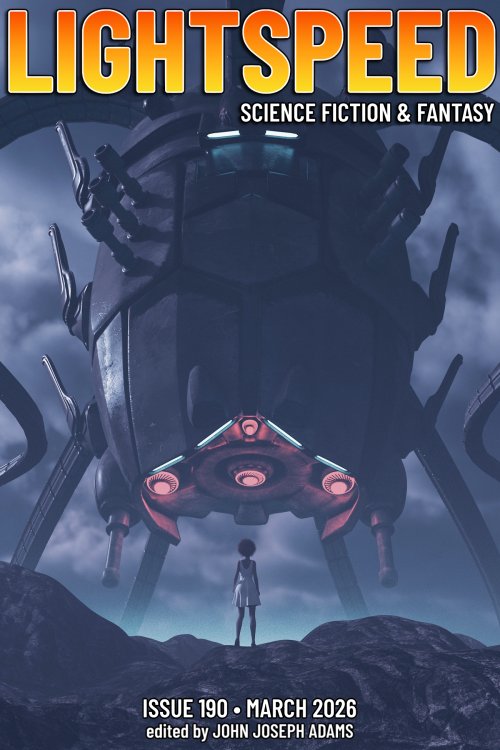Jumpnauts
Hao Jingfang (translated by Ken Liu)
Paperback / Ebook
ISBN: 9781534422117
Saga Press, March 2024, 368 pages
 Greetings, readers, and welcome to another book review! This month we’re going to experience a book that’s equal parts future philosophy, modern meditation, and cultural appreciation: Hao Jingfang’s Jumpnauts, the first book in a trilogy.
Greetings, readers, and welcome to another book review! This month we’re going to experience a book that’s equal parts future philosophy, modern meditation, and cultural appreciation: Hao Jingfang’s Jumpnauts, the first book in a trilogy.
Jumpnauts begins from the perspective of Jiang Liu, a wastrel playboy running from his duties as a son of the premier shipping and information company of the near future age, but rapidly expands from his initial attempts to solve a mystery regarding low frequency radio waves to include archaeologist Yun Fan and military AI specialist Qi Fei (each possessing secrets of their own). The trio’s adventures take them from the surface of Earth to the orbital reaches of the moon and then far beyond, as they struggle to reconcile their own internal traumas with what they think the world expects from them.
One of the first things that really stood out to me reading Jumpnauts is how elegantly it escalates the plotline. When I first started this book I expected it to be a relatively standard SF novel with an easily anticipated story, but at every turn it confounded my expectations (in an entirely good way). Wildly speculative Earthbound adventures give way to even more imaginative extra-terrestrial escapades and then everything keeps moving on from there, and by the time I reached the end of the book it was difficult to believe that this was the first in a trilogy as opposed to an entirely contained magnum opus of its own. Hao Jingfang does a spectacular job of drawing the reader into the world while at the same time leaving them uncertain of where things are going to go next.
The other thing I really enjoyed is that Jumpnauts is an unapologetically Chinese story that contains universally human experiences. Ken Liu does an excellent job translating the core of Jumpnauts for a Western audience, but the points of emphasis, personal interactions, and dialogue choices make it clear that this is a collection of ideas contemplated by Hao Jingfang, for whom the Founding Fathers of America are, at best, a tertiary thought compared to the Warlords of the Three Kingdoms, the precepts of Confucianism, and the underlying structure of Dao (along with an in-depth exploration of Asian-mythological history). However, at the same time, Hao Jingfang (and by association Ken Liu) involves the reader in a universal experience of themes—the isolated child against family; new lovers against old; the past struggling to hold back the future; technology versus spiritualism—all of which come together in multiple set-pieces that could easily take place on Hollywood screens if the budget (and racism in our current age) allowed. Percy Jackson versus the Olympians is a mote in the storm compared to Fanfan’s quest to redeem her father’s name and honor, especially when multiple universes get involved.
Overall, while I felt that the dialogue between characters was weak at times (which made me wish I could read this tale in its original language to capture all the nuances, because I feel that despite Ken Liu’s best efforts, significant parts got lost in translation), the ideas and concepts that Hao Jingfang put forth in this story are so good that I’m asking you, as the reader, to overlook any awkwardness in the language you read this in. Please, just enjoy this story for what it wants to convey, because at its heart, it is an optimistic hope for the future. All of us are here, together, on this planet, trying to do what’s best for us all. We all want to be better. We need to stop letting others tear us apart.
Read if: You understood The Forever War; you laugh in the face of western mythology; you get that borders are arbitrary lines drawn on a piece of paper.
Enjoyed this article? Consider supporting us via one of the following methods:










